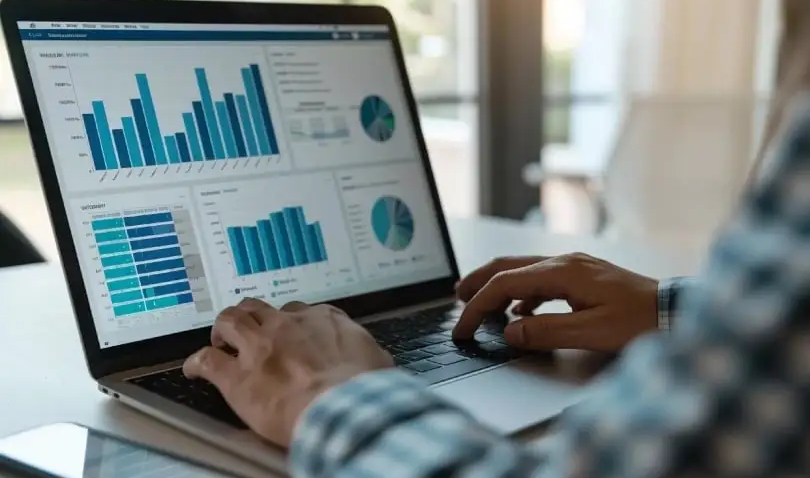
WordPress SEO: Your Guide to Useful Tips and Success
Would like improve WordPress SEO? In such case, you are exactly where you should be!
Search engine optimization (SEO) is something that business owners and marketers in all industries need to know if they are to attract more customers, differentiate themselves from their competitors, and succeed.
Okay, if you want to know more about WordPress SEO and how the right plan can help you succeed, keep reading. We have a lot of great information for you today.
How WordPress SEO Works
To begin, let’s talk about what SEO is: it’s the process of making changes to different parts of your website in order to move it up in search engine results pages (SERPs).
We think that SEO is one of the best and most long-lasting ways to get people to visit your WordPress site and raise recognition of your brand.
Google and other search engines like it when websites are properly optimised. It’s easy to see why getting your content to show up in the SERPs is important when you think about how many searches Google gets every second.
One of the best things about sites that are easy for search engines to understand is that Google can show them to more people.
Google can help people find your blog and other important landing pages if you use the right keywords and make content that people will want to read. That’s why advertisers say SEO gives them the best leads.
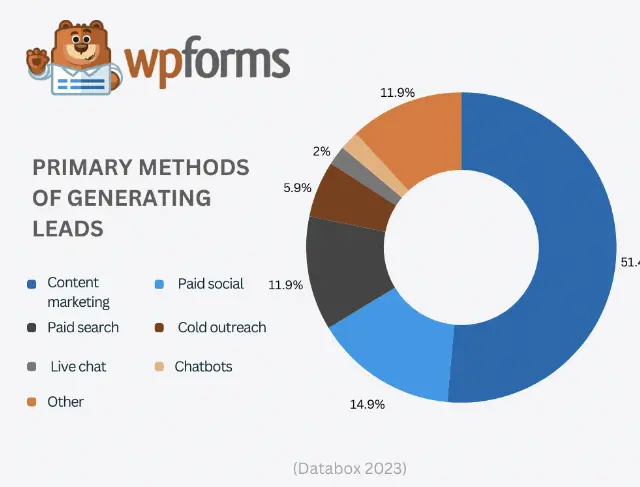
Picture source: WPForms
In the end, if you use the right SEO approach, you can move up in the search results, get more visitors, and connect with your audience more often. More people might sign up, interact, and buy because of this.
Simple SEO tips for WordPress
I know from personal experience that making your WordPress site more SEO-friendly can seem hard at first. You can get lost quickly if you’re new to search engine optimisation and WordPress. There are a lot of places to start.
Don’t worry, though! Here are some easy-to-follow tips that will help you get started:
- Check to See If People Can See Your Site: There is a setting in WordPress that can keep search engines from seeing your site.Setting > Reading is where you find this option.Follow through to “site visibility.” Be sure “Allow search engines to index this site” is checked.
- Use better permalinks: Pwds are the URLs of your pages and posts. Change every one before a post goes live to include words that sum up the post’s substance (such as the title) rather than random numbers.Google can determine the topic of the page with this.
- About the quality of your writing, more than 77% of individuals regularly read blogs: To such end. Posting stuff your readers will find helpful and fascinating should never end. Good information gets shared and linked to more frequently, which is one of the mainstays of a powerful SEO plan.
- Incorporate a search engine optimized theme: Choose a popular WordPress theme with many of options and quick loading times. Google rates websites according to their usability and speed, thus you may improve your SEO significantly.
- Register Google Analytics on your website: Tracking website performance and user interaction is made possible by registering for Google Analytics. With this understanding, you can enhance and add new material to your WordPress website.
The greatest extensions for WordPress SEO
It will please you to know that WordPress offers a wealth of useful SEO tools. Some of the best tools on the market can speed up the optimisation process, help you find the best keywords, and show you gaps you might not have seen otherwise.
Because we’ve tested them and used them for years, we think these three WordPress SEO tools are the best.
We started with Yoast SEO. Better names are hard to come by in the WordPress SEO space. Yoast is still running strong now, from back in 2010. Several are particularly noteworthy:
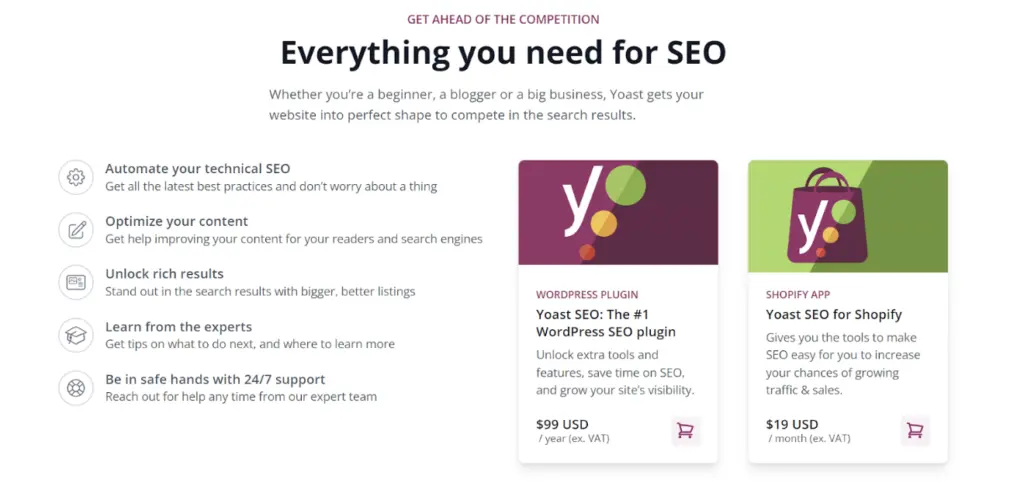
Yoast SEO provided the image.
There is a premium and a free Yoast version. For simpler jobs or to give it a try previous to purchasing, there is a free version.
Two more excellent and maybe top-rated WordPress SEO plugins are RankMath and All in One SEO (AIOSEO).Every one of them has capabilities to improve your search results.
One excellent feature of RankMath is its integrated SEO analytics module, which allows you to view website performance straight from your WordPress homepage. This helped us a lot with keeping an eye on our optimisation plan and keeping track of certain keywords.
AIOSEO also has some great tools, such as the TruSEO On-Page Analysis, which will help you get the most out of your page by putting the right keywords, links, and organised data in the right places.
Check out our list of 7 more SEO tools that every search marketer should use to learn more.
Advanced SEO tactics for WordPress
You now know a bit more about SEO and how the right WordPress plugins can help. Next, let’s look at some more advanced techniques that you should know about if you want to succeed.
- Create a Sitemap: To get around your website, search engine spiders require a sitemap. Following the journey from one URL to the next, Google can determine the topic of your website. Using one of those plugins will make it much easier, as we mentioned above, to create a sitemap and use the other advanced SEO strategies on this list.You will have to start afresh and send Google an index in such scenario.
- Make use of the Robots.txt files: These files tell search engine which parts of your website to crawl and which to ignore. Robots.txt files that are properly set up let search engines crawl your main content first, which raises website visibility.
- Make your site work well on smartphones: More than 61% of searches are now done on phones, so your site needs to be optimised for them. It’s important for SEO because Google says they are focused on mobile-first experiences. Use a page builder that is flexible so you can make changes to your site for these people.
- Make good use of categories and tags: to arrange your items into relevant topics. Search engines and users of your website can both tell what you like talking about if it is structured logically. PPC and social media marketing are two examples of categories found on marketing websites. Creating several categories and tags will help you to better explain your posts. This small step makes sure that the right people find your work.
What are SEO services for WordPress?
Now, let’s talk about when you might need professional WordPress SEO services.
Above all, SEO services give your website focused, useful assistance in increasing its visibility.
SEO companies will examine the organization, content, and keyword optimization of your website to recommend areas that need work. If your organic traffic is flattening and your keyword ranks are dropping, their wide range of services and capacity to do a thorough study of your website are essential.
They take into account your standing against that of your rivals as well. This will let you see how they obtain free views and clicks.
It’s great to work with WordPress SEO pros because they will tell you what’s wrong and then fix it. A lot of the time, they can help you improve your site’s content, speed, and keywords so that it ranks higher in search engines.
It can be expensive to hire skilled SEO services, but it’s definitely worth it if you want to improve your site’s search performance.
How to make your WordPress material SEO-friendly
One of the best ways to move up in the search results is without a doubt to make content that people want to click on. A huge chunk of people aren’t ready to buy something the first time they visit a website. They look at the company blog first. They might decide to join your email list if they like what they see.
But you need to make their lives better in order to get their email address. Also, it’s very important that search engines know when to show other people your blog. This is called “perfect curation.”
You will be glad to know that there are many strong and not too hard ways to make content SEO-friendly.Check that every section of your post uses at least one term. Though every company is unique, generally speaking, you should pick terms with medium to high search volume and little to medium competition.
Use these words and sentences in your title, headings, and text in a way that makes sense. This gives crawlers some background information about each page, which helps them decide how to group it for people who type in your chosen terms.
Don’t forget to use lots of headings to make your writing simple to read. Google reads H2 and H3 headers to find out more about a page, so this is also a great time to add one or two more keywords.
I also think you should use conversational wording, since voice search users like that. It’s clear why this step is so important when you think about how 30% of mobile searches are done without a screen.
When you’re done with that, don’t forget to add a FAQ to the end of each post.Doing this step may even result in a featured snippet for your selected phrase. It will address often asked questions and improve your voice search ranking.
An excellent WordPress plugin called Yeast SEO can help with this. Before you hit “Publish,” it offers you a final score, where to place keywords, and how easy your post is to read. For those who are brand-new to marketing or simply want “another” pair of eyes on their work, this tool is fantastic.
Tips for technical SEO on WordPress
Technical SEO might sound hard, but it’s mostly about making sure your site works well and safely. Here are five technical SEO tips that I think all professionals should use to make their search profile better:
- Speed Up Your Site: Your site needs to load quickly. If it doesn’t, people may leave before reading your material. We learned that most people expect a page to load in two seconds or less. After a while, the bounce rate starts to rise very quickly. 53% of people say they’ll leave after 3 seconds if it doesn’t load. Things can go faster if you compress images, host movies off-site, use lazy loading, and add a caching plugin.
- Using a responsive design: can guarantee that your website looks great on all of the most widely used PCs, tablets, and smartphones. So use responsive design. You should always confirm that your WordPress theme works with all screen widths even if it says in its options that it does. Look over your website quickly on a couple different devices. That way you can be sure that everyone who visits your website has a great time, no matter how they got there.
- Check HTTPS status: It takes safe connections to protect the information of your visitors. HTTPS helps to build trust in part by guaranteeing your customers’ data security. Should “HTTP” continue to appear on your website, you should obtain an SSL license from your hosting company. This change not only secures your data but also offers your audience a more reliable perception of you and may even raise the search engine rating of your website.
- Plan the internal linking: Your pages are connected by these connections, which also aid search engines in determining the layout of your website. The most crucial pages are given more weight, which facilitates placing orders on your website.When you write something new, you should always link to your key pages. It should be easy for people to find and go to other useful and interesting pages on your site as they read it. This will make the experience more interesting for them.
- Run a technical SEO audit: to see how your website is doing. This Google tool will let you identify your strengths and areas for improvement. Yoast SEO can also swiftly and simply point up issues on every page and offer solutions. One of their papers looks like this:
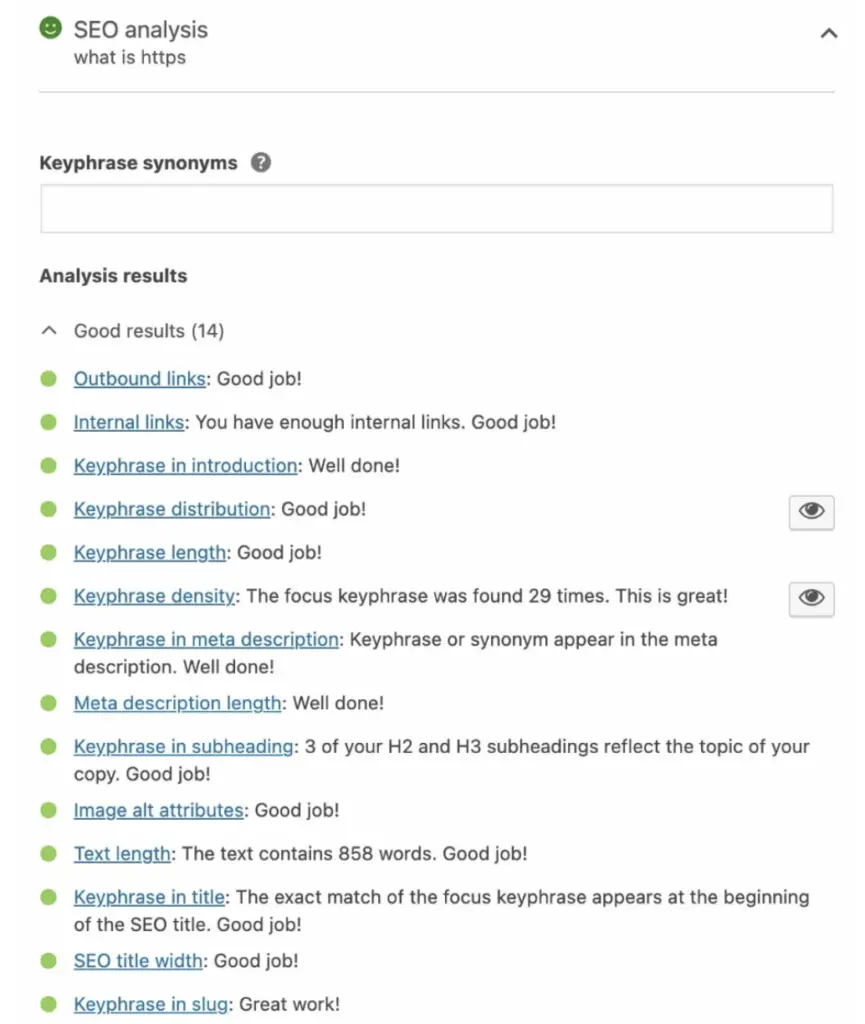
The image comes from Yoast SEO.
Techniques for on-page SEO
We’re now going to look at some on-page SEO techniques and features that can help you move up in the rankings.
Title for SEO
It’s the first thing people see in search results, so think of your SEO title as a first impression. Be careful when writing it, and make sure that your main term is near the beginning. This will help you get people’s attention before they scroll down and forget about you.
Having an optimised, catchy SEO title can definitely boost your clickthrough rate. This tells search engines what your content is about.
Meta Description
The meta description is what shows up below your SEO title in search results. It briefly describes what your page is about. People might have been interested in your title, but now you need to tell them why they should click through.
I think you should figure out a way to include your main term in the meta description. But remember that your main goal is to get people to click on your link.
The canons
To handle duplicate information on a site, canonical tags are necessary. These tell search engines which version of the page is the source and should be used. Without them, you might make it hard for search engines to figure out which post is most important.When you add canonicals, make sure visitors can locate the appropriate page on your website.
Redirections
Redirections let you point users (and search engines) to a new page when one has changed. For instance, if you chose to put all of your posts about statistics into one big article, the URLs of all of the original posts would change. If a visitor gets to one of these pages, the redirect sends them back to the current URL so they can keep going with their trip.
Slug
Any page’s or post’s title is included in the URL slug. As with a storefront sign, keep it simple for both search engines and humans to understand. Putting your statement in the slug might also be useful, but remember that clarity is essential.
For example, Cook-waffles-from-scratch could be the slug for a page with a story called How to Cook Homemade Waffles from Scratch.
Number of Keywords
You have to carefully balance the words you use in your text if you want to use keyword density. Too many and it will look like you’re stuffing your content, which is bad for both readers and search engines. Not enough and you might miss out on SEO chances.
Most people agree that the keyword intensity should be between 1% and 2%. That is, you can use it 15 to 30 times for every 1,500 words. Of course, it goes without saying that they should always feel spontaneous and not forced.
Excerpt
Now is your chance to show a quick look at each blog post on your site. Excerpts are often shown on the home page or main page of a blog. They tell people what the post is about. A lot of people read the sample to decide if they want to read the whole thing. So, make sure it’s interesting and related to the post’s title.
Let’s look at an excerpt to see why they are so useful for both users and search engines:
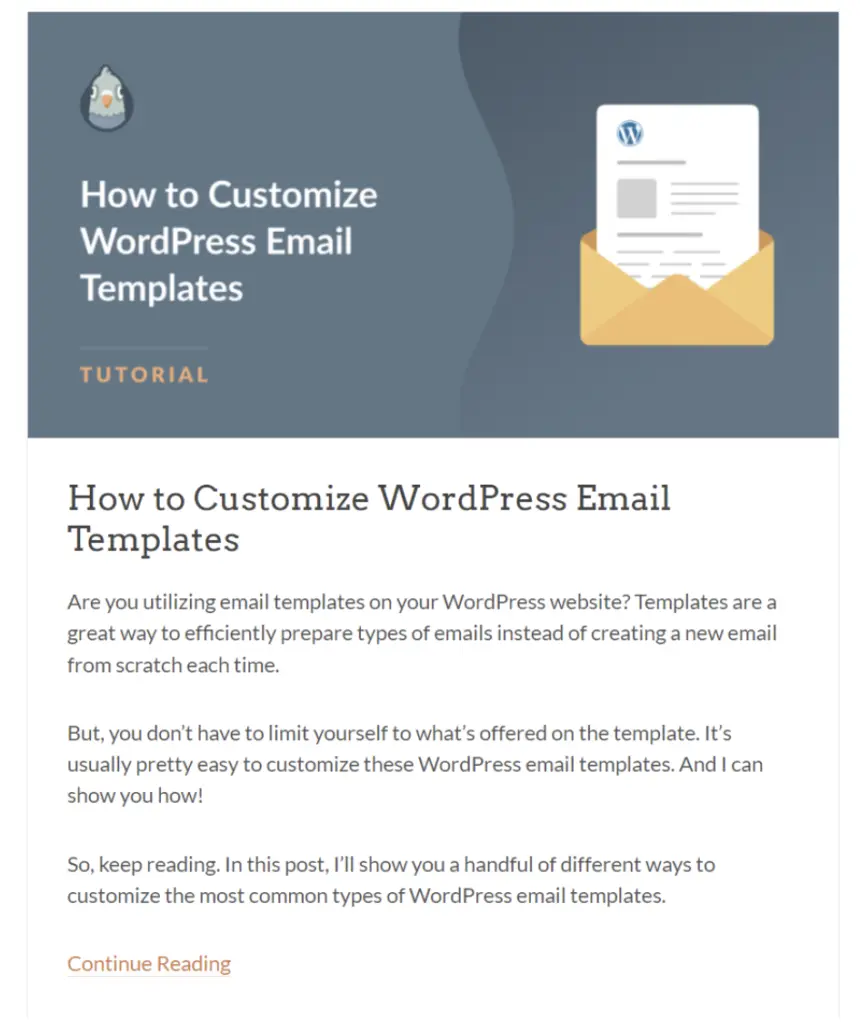
Source of the picture: WP Mail SMTP
Techniques for off-page SEO
On-page SEO is important for making your WordPress site more visible, but off-page SEO is just as important. On-page SEO is what you do on your website itself. Off-page SEO, on the other hand, is how you improve your site’s image and connection with other websites and internet users.
Off-site SEO gives you a lot of different ways to raise your rank. Here is a list of our favourite strategies:
Content that can be linked to
Building links is like getting a thumbs up. Search engines know that your content is important when other reputable sites link back to it. You’ve already taken the first step if you chose to focus on making good content that other people want to share after our advice.
The chances are good that another blogger will link back to your work in their post if they find it interesting or useful. A reference, which is like a stamp of approval for search engines, will be given to you. Google will probably give your page more weight if a lot of other sites link to it.
Write guest posts now.
In simple terms, guest posts are blog posts that you write for other websites. For guest blogging chances, you can ask people in your network, publications in your field, and even companies that give away free stuff. Find out if they want material. If they say yes, tell them about your plan!
Read their rules to find out how to link to your own material. In some sites, you can only have one link in your author bio. In others, you can link to your blog more than once in the same post.
It’s the same as when you use backlinks. It’s better to build with reliable sites more.
Online phone books and directories
Add your business to the right web directories and platforms. This not only helps people find your website, but it also gives you more backlinks. Make sure that all of your profiles are full and correct; having the same information in all of the directories will help people trust you more.
Do not wait any longer to claim your Google My Business page. This will make it easier for people to find your website. You should also check the Better Business Bureau, Best of the Web, your Facebook page, and any other places you think people might be able to find you.
Using social media to connect
Talking to people on social media sites like Instagram, Twitter, YouTube, and TikTok will help your work reach more people and be more likely to be shared.
Even though these social signs don’t have a direct effect on rankings, having people from all over the internet visit your site can help it naturally grow and get more visitors. Nearly 60% of people in the world have at least one social account. This is another reason to spend more time promoting your business on social media. You can be sure that the people you want to reach are waiting for you.
Reviews
97% of customers who intend to buy first read reviews. As this astounding statistic shows, evaluations and recommendations may be highly helpful for businesses in a variety of industries.
Positive evaluations will encourage visitors to your website to learn more about your goods or services. Also, it’s important to note that Google can see what other people think of your business if you use structured data for your reviews. If you regularly get good reviews, Google may move you up in the results.
Keeping an eye on your WordPress SEO progress
Lastly, it’s just as important to keep track of your SEO results as it is to do the SEO work.If you fail to monitor your development, you won’t know if your strategies are functioning or how to improve.Not much might change on your page or in the search results as a result.
Using tools like Google Analytics and Google Search Console makes keeping a check on your SEO easy. Utilising Google Analytics, find out how many people visit your website and what they do there. Google Search Console also enables you to determine the visibility of your website and identify any issues that could be causing it to load slowly.
If you decide to try Yoast SEO, you’ll find that they have a full tracking tool that helps you plan out the best things to do in the coming months.
No matter what you use to keep an eye on your WordPress SEO, you should still keep an eye on and understand this data so you can keep learning and growing.
Ending it up
We talked about a wide range of SEO tips for beginners to experts today. We also looked at the best WordPress SEO services and plugins and a number of on-page and off-site SEO tactics.
If you feel like you have too much to do, take a deep breath and remember that SEO is an ongoing project that will take time and patience.Feel no need to complete everything at once. Rather, stand back and organize your activities for the next few days. That might entail reading some advice, to start. It can also entail having an SEO professional review your website. In between, there are a huge number of other things that can happen.
The most important thing to remember is that your SEO plan will only work if you are aware of it, keep at it, and want to make it better. Our view is that everyone can rank; they just need to make the right choices along the way.












